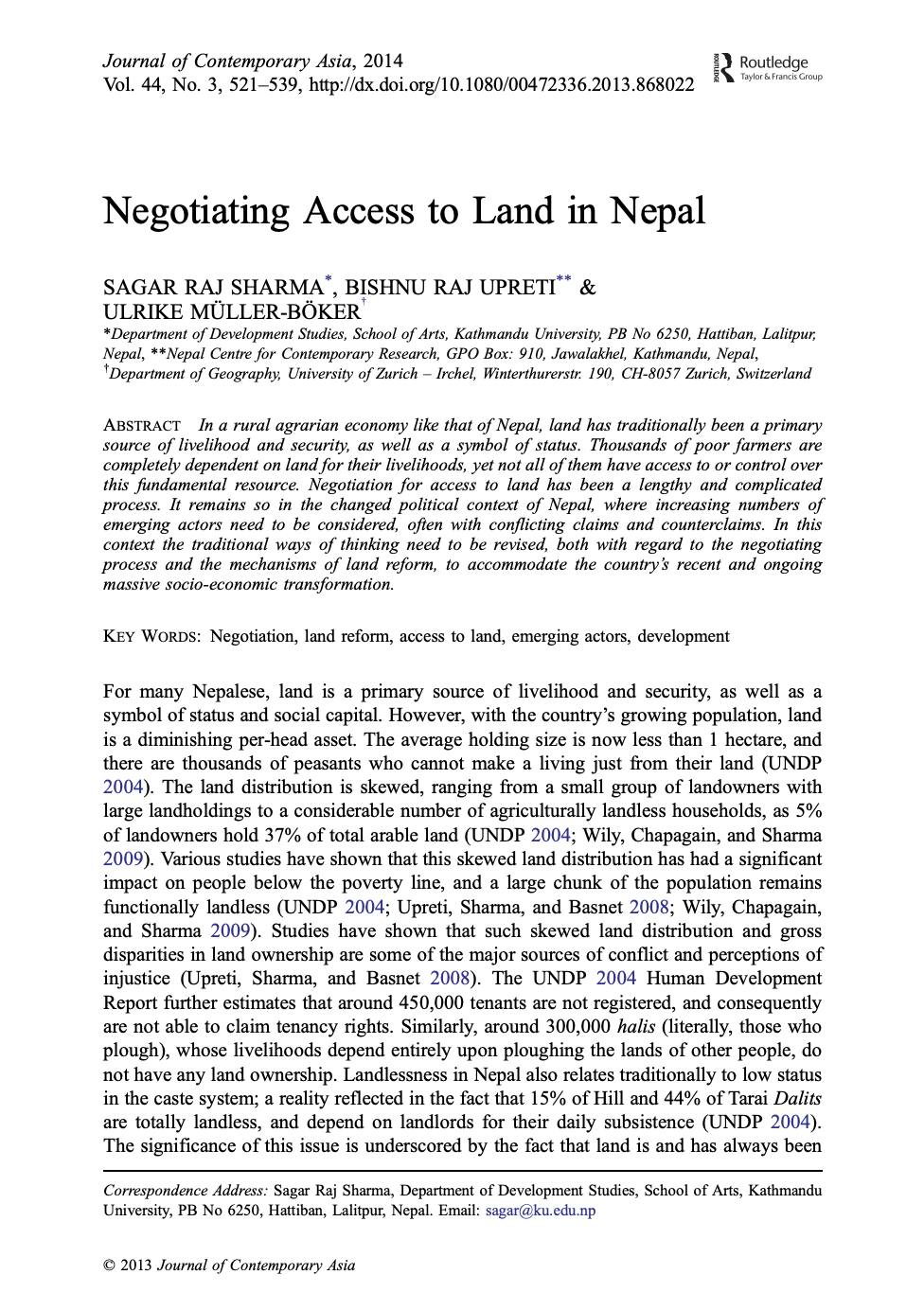Resource information
In a rural agrarian economy like that of Nepal, land has traditionally been a primary source of livelihood and security, as well as a symbol of status. Thousands of poor farmers are completely dependent on land for their livelihoods, yet not all of them have access to or control over this fundamental resource. Negotiation for access to land has been a lengthy and complicated process. It remains so in the changed political context of Nepal, where increasing numbers of emerging actors need to be considered, often with conflicting claims and counterclaims. In this context the traditional ways of thinking need to be revised, both with regard to the negotiating process and the mechanisms of land reform, to accommodate the country’s recent and ongoing massive socio-economic transformation.

